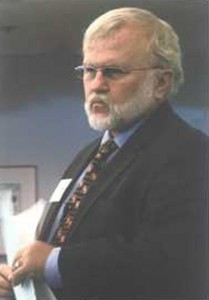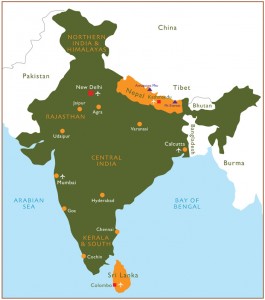
For India to take a lead role on the world stage it must overcome an assortment of competing sectarian influences that keep it from becoming a unified nation.
It’s a tall order, said Ohio Wesleyan University professor Blake Michael in the final event in the Great Decisions lecture series Friday, focused on the politics of India since it gained independence in 1947.
Michael took the podium in a last minute call to replace speaker Irfan Nooruddin, a professor at Georgetown University and an Ohio Wesleyan alumnus, who had to cancel his talk titled “India Changes Course.”
Michael also led last week’s Great Decisions lecture about sectarianism in the Middle East.
He began by describing the impact sectarianism has had in India.
“How do you build a nation that identifies itself as Indian when you have all these competing components — religious, linguistic, regional — that are pulling people to identify with smaller and smaller groups?” Michael said.
Convincing Hindus and Muslims to both identify as Indian has not been easy, he said. And the growing prominence in the last few years of the Bharatiya Janata Party has also impaired progress. That party wants India to become a Hindu nation.
India is similar in physical size and population as Europe and has “great potential for productivity on the world stage,” Michael said.
After winning its independence, India tried to become more united and it “swallowed up” some of its neighboring nations, he said.

One country that has remained mostly independent is Nepal.
“Being Nepal is like being a puppy dog sleeping next to an elephant,” Michael said. “India is monstrous and some of the nations around it are fairly small and have to be very careful which way they roll over.”
Delaware resident Connie Lybarger said she has been coming to the Great Decisions lectures with her husband since the series began. She said she liked that Michael emphasized India’s immense size and included information about Pakistan, where she and her husband were missionaries.
Richard Fischer, also of Delaware, said the lecture provided a perspective not found in the mainstream media.
“You’re hearing someone, who knows something well, tell you about a topic without an agenda,” he said.

“India is Monstrous” I don’t agree that in this age, that India would pose such a threat to it’s neighbors.